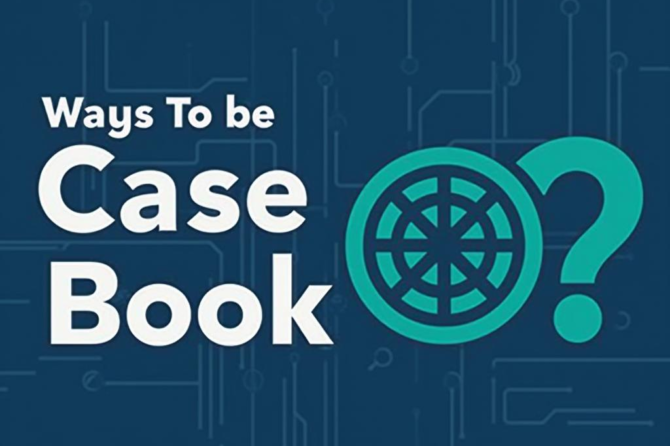So, you’re curious about the world of cybersecurity? You’re not alone! As our lives become increasingly digital—think online banking, social media, and working from home—the need for cybersecurity has skyrocketed. In fact, cybersecurity jobs are projected to grow by an impressive 31% from 2019 to 2029, according to the U.S. Bureau of Labor Statistics. That’s a lot of opportunities! But let’s break down what cybersecurity really is and why it matters.
In simple terms, cybersecurity refers to the practice of protecting computers, servers, networks, and data from harmful attacks. Just like locking your doors to keep your home safe, cybersecurity measures help safeguard your digital information from anyone trying to access it without permission. The stakes are high, as a single data breach can lead to financial loss, identity theft, or even the compromise of national security.
Why Pursue a Career in Cybersecurity?
Now that we’ve explored the landscape of cybersecurity, you might be wondering: “Why should I consider a career in this field?” Here are a few compelling reasons:
- High Demand: With the projected job growth rate, companies are actively looking for skilled cybersecurity professionals.
- Diverse Opportunities: From penetration testing to incident response, there are many career paths you can take within cybersecurity.
- Impactful Work: You’ll be on the front lines of protecting individuals and organizations from cyber threats, making a tangible difference in a digital world.
Plus, the field of cybersecurity tends to offer competitive salaries and options for remote work, making it an attractive career choice for many!

Essential Skills for a Successful Cybersecurity Career
When you think about starting a career in cybersecurity, it’s a bit like preparing for a thrilling adventure—one where you need to pack the right skills in your toolkit to navigate through the digital wilderness. Let’s dive into the essential skills you’ll need to become a cybersecurity superstar!
1. Technical Skills: The Foundation
Imagine trying to bake a cake without knowing the ingredients or how to mix them together. That’s what it’s like stepping into cybersecurity without the necessary technical skills. Here are a few key areas to focus on:
- Networking: Understanding networks is crucial. It’s all about knowing how data flows from one device to another. Think of it as learning the highways and byways of the internet.
- Operating Systems: Familiarize yourself with various operating systems, especially Linux and Windows. They each have their quirks, and knowing how they work can help you protect them better.
- Programming Languages: While you don’t need to be a coding wizard, having a grasp of languages like Python or Java can give you an edge. It helps you understand how software works and where vulnerabilities might lie.
These technical skills form the backbone of your cybersecurity knowledge. They’re what you’ll rely on when trying to identify threats or mitigate vulnerabilities.
2. Soft Skills: The Secret Sauce
Now, let’s talk about the often-overlooked side of cybersecurity: soft skills. You might think that being a cybersecurity expert is all about crunching numbers and analyzing data, but communication and problem-solving are equally important. Here’s why:
- Problem-Solving: Every day in cybersecurity brings new challenges. You’ll need to think on your feet, analyze situations, and come up with effective solutions quickly.
- Critical Thinking: This involves evaluating different aspects of a security issue and determining the best course of action. It’s like being a detective, piecing together clues to solve a mystery.
- Communication: Whether you’re explaining a security concern to a technical team or presenting findings to non-tech stakeholders, clear communication is key. You’ll want to make sure your message comes across without jargon that can confuse people.
Soft skills often make the difference between a good cybersecurity professional and a great one. They enable you to work well within teams, manage projects, and convey complex ideas in simpler terms.
3. Certifications: Your Credentials
As you build your skill set, you might be wondering how to validate your knowledge. Enter cybersecurity certifications! These are like badges that showcase your expertise to potential employers. Here are some popular certifications to consider:
- CompTIA Security+: A great starting point for beginners. It covers essential concepts in cybersecurity and gives you a solid foundation.
- Certified Ethical Hacker (CEH): This one’s a bit more advanced and focuses on understanding how hackers think, so you can better defend against them.
- Certified Information Systems Security Professional (CISSP): If you’re looking to specialize and take on leadership roles, CISSP is highly regarded and covers a wide range of topics.
Investing time in certifications can pay off, as many employers look for these credentials when hiring.
4. Keeping Up-to-Date: The Ever-Changing Landscape
Cybersecurity is like a fast-paced game where the rules are constantly changing. New threats emerge every day, and as a cybersecurity professional, you need to stay ahead of the curve. A few ways to ensure you’re always in the know include:
- Online Courses: Platforms like Coursera, Udacity, and others offer courses that keep you updated on the latest trends and technologies.
- Industry News: Follow blogs, podcasts, and news sites dedicated to cybersecurity. Staying informed will help you understand the context of the skills you’re learning.
- Conferences and Meetups: Attending industry events not only helps you learn about new developments but also expands your professional network.
Think of this as a lifelong journey. The more you learn, the better equipped you’ll be to tackle whatever challenges come your way.
Educational Pathways: Degrees and Certifications
When diving into a cybersecurity career, the educational path you choose can greatly influence your journey. Let’s break it down into two main components: relevant degrees and certifications. Think of these as your foundational tools in a toolbox, each serving a distinct purpose.
Overview of Relevant Degrees
First off, let’s talk about degrees. While a formal education isn’t the only route into cybersecurity, it can certainly give you a leg up. Here are a couple of popular degree options:
- Computer Science: This is a classic choice that covers a wide array of topics like algorithms, software development, and systems design. It lays a strong foundation for understanding how computers work, which is crucial when you’re tackling security issues.
- Information Technology (IT): A degree in IT typically takes a more practical approach, focusing on managing and implementing technology solutions. You’ll learn about networks, system administration, and, yes, cybersecurity.
- Cybersecurity: Some universities now offer dedicated degrees in cybersecurity. These programs delve deeply into security protocols, ethical hacking, and risk management, giving you specialized knowledge right from the get-go.
Each of these degrees has its perks, but remember, they’re not the only way in. Hands-on experience often trumps a fancy degree, especially in tech fields.
Comparing Certifications: ROI of Certifications vs. Degree
Now, let’s pivot to certifications. You might be wondering, “Should I pursue a degree or a certification?” The truth is, both have their merits, and it often boils down to your career goals and current experience.
Here’s a quick comparison to help clarify:
| Criteria | Degree | Certification |
|---|---|---|
| Time Investment | 4 years (typically for a bachelor’s) | Months to a year (varies by certification) |
| Cost | Higher (tuition fees, books, etc.) | Lower (exam fees, study materials) |
| Depth of Knowledge | Broad and theoretical | Specific and practical |
| Market Demand | Valuable but not always necessary | Highly sought after for specific roles |
Key takeaway: If you’re looking to jumpstart your career quickly or switch fields, certifications might be the way to go. However, if you’re just starting out and have the time and resources, a degree can provide a solid foundation.
Online Learning Platforms Offering Cybersecurity Courses
The beauty of today’s digital age? You don’t have to step foot in a classroom to gain valuable knowledge. Online learning platforms have exploded in popularity, making cybersecurity education accessible from anywhere. Here are a few that come highly recommended:
- Coursera: Offers courses from top universities, including Stanford and the University of Michigan. You can learn at your own pace, and many courses provide a certificate upon completion.
- edX: Similar to Coursera, edX partners with universities and institutions globally to offer courses that can even count towards a degree.
- Udacity: Known for its “Nanodegree” programs, Udacity focuses on practical, project-based learning and often collaborates with industry leaders.
- Cybrary: This platform specifically caters to cybersecurity and IT professionals, offering free courses along with subscription-based content for more advanced topics.
Pro tip: Look for courses that include hands-on labs or projects. Theoretical knowledge is great, but applying it in real-world scenarios is invaluable.

Gaining Practical Experience in Cybersecurity
When it comes to launching a successful career in cybersecurity, gaining practical experience is as essential as acquiring the right skills and knowledge. Think of it as the bridge that connects your education to your dream job. Let’s dive into the various ways you can build your experience and step confidently into the cybersecurity world!
The Importance of Internships and Entry-Level Positions
Internships are like the golden tickets of the cybersecurity field. They offer you a taste of the real-world environment where you’ll apply what you’ve learned in school. Not only do they help you build invaluable skills, but they also allow you to network with professionals in the field, which can open doors later on.
Here’s why you should consider internships seriously:
- Hands-on Experience: You’ll be working on actual security issues, helping to identify vulnerabilities or responding to incidents.
- Mentorship: Interns often have access to seasoned professionals who can offer guidance and share helpful insights.
- Resume Builder: An internship on your resume demonstrates commitment and gives you concrete experience to discuss in interviews.
If you’re just starting, look for entry-level positions like Security Analyst or IT Support. These roles often serve as stepping stones to more advanced cybersecurity careers.
Volunteer Opportunities and Cybersecurity Competitions
Did you know that volunteering can also be a fantastic way to gain experience? Many non-profits and community organizations need help with their cybersecurity efforts. By volunteering, you can:
- Gain Real-World Experience: Help organizations protect their data, giving you practical experience while contributing to a good cause.
- Build Relationships: Meet like-minded individuals and professionals who can provide advice, mentorship, or job leads.
Additionally, participating in Capture The Flag (CTF) competitions can be a game-changer. These competitions allow you to test your skills in a fun, competitive environment. You’ll solve puzzles that mimic real-world cybersecurity challenges and learn to think like a hacker—all while having a blast!
Networking Through Local Meetups and Online Forums
Networking is a crucial aspect of building a career in cybersecurity. It’s not just about who you know, but who knows you! Here are some tips on how to network effectively:
- Local Meetups: Many cities host cybersecurity meetups where enthusiasts gather to share knowledge and experiences. Attend these events to meet professionals in your area.
- Conferences: Look out for cybersecurity conferences such as DEF CON or Black Hat. These events are excellent for learning and networking.
- Online Forums: Platforms like LinkedIn, Reddit, and professional cybersecurity groups provide a space to connect with others in the industry. Engaging in discussions can help you learn and showcase your expertise.
Don’t be shy—introduce yourself, share your interests, and ask questions. You’d be surprised how open professionals are to helping newcomers!
Building a Personal Brand Online
In today’s digital age, having a strong personal brand is crucial. Here are a few simple steps to get you started:
- Create a LinkedIn Profile: Make sure your profile is complete and showcases your skills and experiences. Use a professional photo and write a compelling summary.
- Share Your Knowledge: Consider writing articles or blog posts about cybersecurity topics you’re passionate about. This not only demonstrates your knowledge but also helps you connect with others in the field.
- Engage on Social Media: Follow cybersecurity leaders and engage with their content. This can help you stay informed about industry trends and make connections.
By building your online presence, you’re setting yourself up as a knowledgeable candidate when it comes time to apply for positions.
Crafting an Impressive Resume and Cover Letter
When it comes to landing that coveted cybersecurity job, your resume and cover letter are your first chance to make a fantastic impression. Think of them as your marketing materials—like a movie trailer that gives just enough excitement to get people interested. Let’s dive into how you can craft these documents to stand out in the competitive world of cybersecurity.
The Anatomy of a Cybersecurity Resume
A well-structured resume is essential. Here’s what to include to make yours pop:
- Contact Information: Always start with your name, phone number, email, and LinkedIn profile (if you have one). Make it easy for recruiters to reach you!
- Professional Summary: A brief statement (2-3 sentences) summarizing your skills and career goals. Tailor this to the role you’re applying for. For example, you might say, “Detail-oriented IT professional with a passion for cybersecurity and hands-on experience in threat analysis.”
- Skills Section: List relevant technical skills like networking, knowledge of firewalls, and programming languages. Don’t forget soft skills like problem-solving and teamwork—these are critical in cybersecurity!
- Certifications: If you have any cybersecurity certifications such as CompTIA Security+ or CEH, showcase them here. They can set you apart!
- Experience: Highlight your work experience, including internships and relevant roles. Use bullet points to describe your contributions. Instead of saying “Monitored security systems,” try “Proactively identified and resolved security incidents, reducing response time by 40%.”
- Education: List your degrees and relevant coursework. If you graduated from a well-known program, be sure to mention it!
Remember, your resume should fit on one page if you’re just starting out. Keep it clean, concise, and professional.
Writing a Tailored Cover Letter
Now, onto your cover letter! This is where you can add a personal touch and show potential employers why you’re the best fit. Here’s how to structure it:
- Introduction: Start with a strong opening statement. Mention the job title and where you found the job listing. For example, “I am excited to apply for the Cybersecurity Analyst position listed on your careers page.”
- Body Paragraphs: This is your chance to explain how your skills and experiences make you a great candidate. Pick 2-3 key experiences from your resume and elaborate on them. For instance, you could detail a project where you led a team in conducting a vulnerability assessment.
- Connection to the Company: Show that you’ve done your research! Mention something specific about the company—like their cybersecurity initiatives—that attracts you to them. This demonstrates your genuine interest.
- Conclusion: Wrap up by expressing your enthusiasm for the role and that you look forward to discussing your application further. Don’t forget to thank them for considering your application!
Showcasing Technical Projects and Accomplishments
Employers love to see real-world examples of your skills in action. If you’ve worked on projects—whether in school, during an internship, or even on your own—make sure to include them. You can list them in your experience section or create a separate section titled “Projects.”
Here are some ideas on what to showcase:
Team Projects: If you worked with peers on a cybersecurity project (like a pen-test simulation), explain your role and the outcome.
Personal Projects: Have you built a lab at home to practice ethical hacking? Discuss what you learned and how it relates to the job.
Competitions: Mention any Capture the Flag (CTF) competitions you’ve participated in, and note any awards or recognitions.
Best Practices for Formatting
Presentation matters! Here are some quick tips to ensure your documents look professional:
Use clear headings. This helps recruiters skim through your resume easily.
Choose a Professional Font: Stick to standard fonts like Arial, Calibri, or Times New Roman.
Limit Color Use: While a splash of color can add personality, keep it subtle and professional.
Proofread: Typos can be a red flag. Have a friend or mentor review your documents before sending them out.
Job Search Strategies for Cybersecurity Roles
So, you’ve got your skills, education, and maybe even some hands-on experience under your belt. Now comes the exciting part: searching for a job in cybersecurity! This phase can be a bit daunting, but don’t worry; we’re here to break it down into manageable steps. Whether you’re targeting your first role or looking to switch gears, these job search strategies will help you navigate the cybersecurity job market effectively.
1. Utilize Job Boards
The internet is brimming with job opportunities, but knowing where to look is key. Here are some popular job boards to get you started:
- Indeed: A powerhouse of job listings across various industries.
- Glassdoor: Great for not only job listings but also company reviews and salary insights.
- LinkedIn: It’s not just for networking; many companies post jobs here as well.
- CyberSecJobs: A niche job board dedicated solely to cybersecurity roles.
When browsing these platforms, be specific in your search. Use keywords such as “entry-level cybersecurity” or “IT security analyst” to narrow down the listings that are relevant to you.
2. The Role of Networking
Networking is one of the most effective strategies in job hunting, especially in the cybersecurity field. Here’s how to make the most of it:
- Join Professional Groups: Look for local or online cybersecurity groups. Groups on platforms like Meetup can lead to valuable connections.
- Participate in Forums: Websites like Reddit or specialized forums can provide insights and potential job leads.
- Attend Conferences and Workshops: Events like DEF CON or Black Hat are perfect for learning and meeting industry professionals.
Remember, networking isn’t just about asking for jobs. It’s about building relationships. Engage in conversations, share your interests, and don’t hesitate to reach out to professionals for informational interviews.
3. Leveraging LinkedIn for Job Searching
LinkedIn is more than just a digital resume; it’s a platform for professional branding and networking. Here’s how to optimize your LinkedIn presence:
- Complete Your Profile: Include a professional photo, an engaging summary, and details about your skills and experiences.
- Showcase Your Skills: Highlight relevant skills that employers are searching for, like ethical hacking or risk assessment.
- Engage with Content: Follow industry leaders, share articles, and participate in discussions to increase visibility.
- Use Job Alerts: Set up job alerts for specific roles or keywords so you never miss an opportunity.
A well-curated LinkedIn profile can attract recruiters and hiring managers to you, making it easier to land that dream job.
4. Tailoring Your Applications
When you see a job that excites you, take the time to tailor your application. This can make a significant difference. Here’s how:
- Customize Your Resume: Incorporate keywords from the job description to ensure your resume stands out.
- Write a Compelling Cover Letter: Use this opportunity to share your story, explain your passion for cybersecurity, and how your skills align with the role.
Employers appreciate when candidates take the time to personalize their applications, showing genuine interest in the position.
5. Preparing for the Interview
You’ve landed an interview—congratulations! Now, preparation is key. Think of it like rehearsing for a performance:
- Research the Company: Understand their culture, mission, and recent projects. This knowledge can help you tailor your answers during the interview.
- Prepare for Technical Questions: Brush up on common cybersecurity concepts, tools, and practices you might be asked about.
- Practice Soft Skills: Effective communication and problem-solving abilities are crucial in this field. Be ready to demonstrate these during your interview.
Additionally, have questions prepared to ask the interviewer. This shows your enthusiasm and interest in the role and the company.
Final Thoughts
In conclusion, embarking on a cybersecurity career is an achievable goal with the right mindset, skills, and resources. With the insights provided in this guide, you now have a clear understanding of the steps to take as you begin this exciting journey. From understanding the landscape to preparing for interviews, each element plays a crucial role in your success.
Remember, the world of cybersecurity is vast and ever-evolving. Stay curious, keep learning, and take actionable steps toward your goals.









